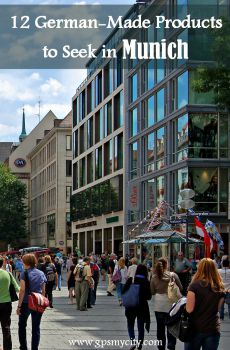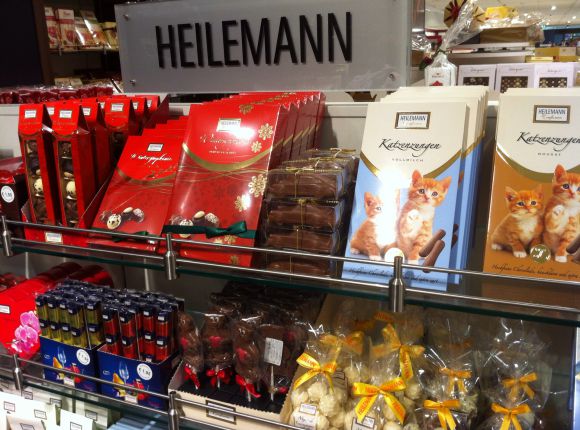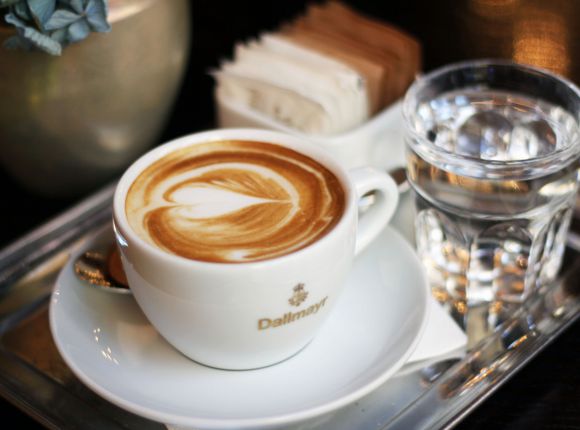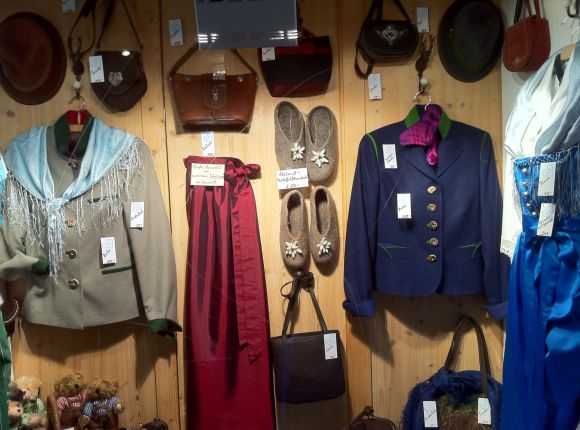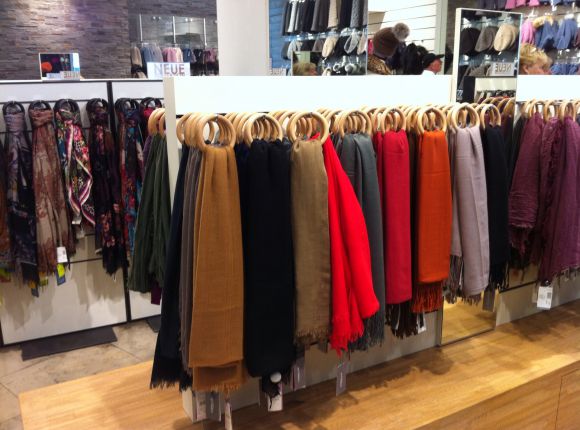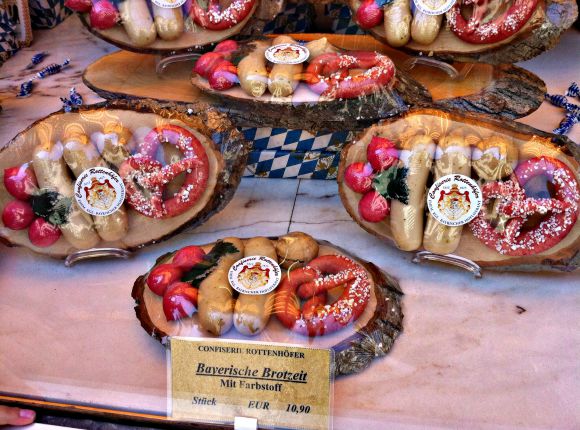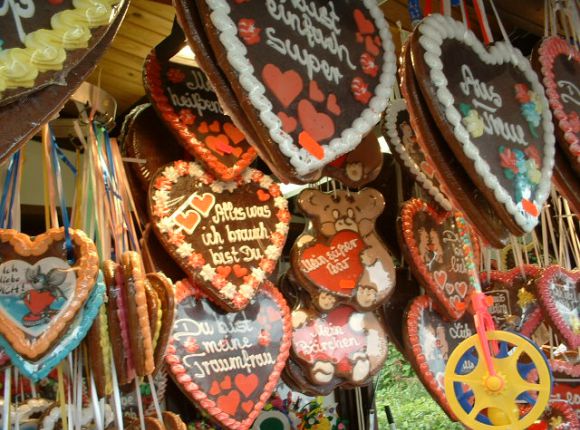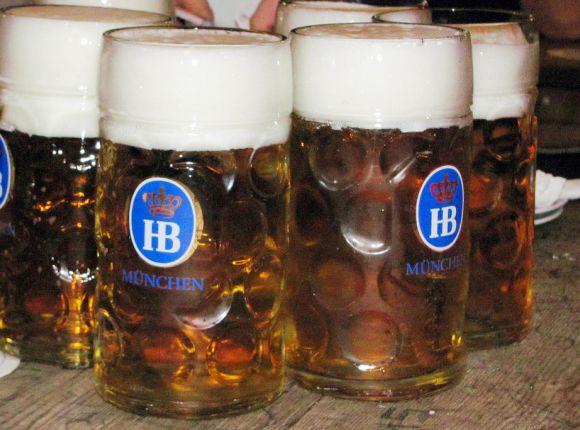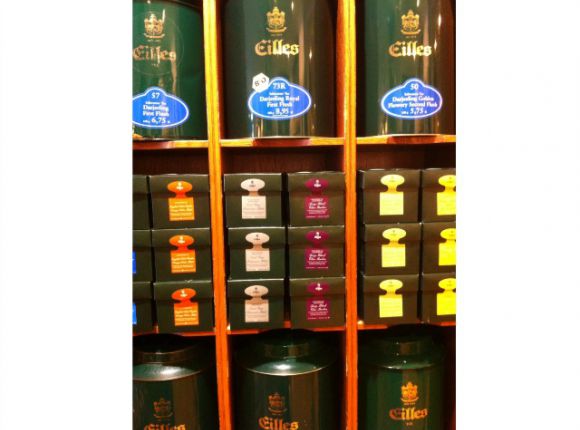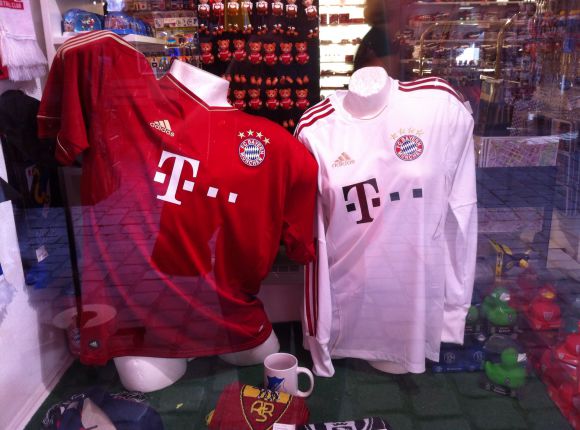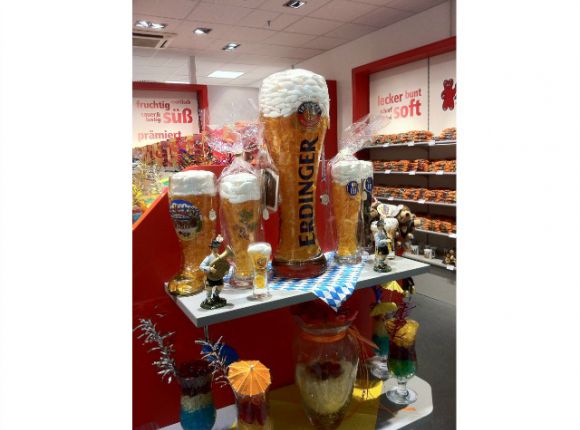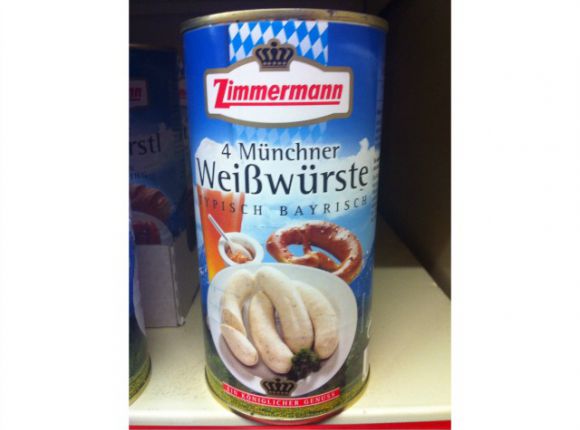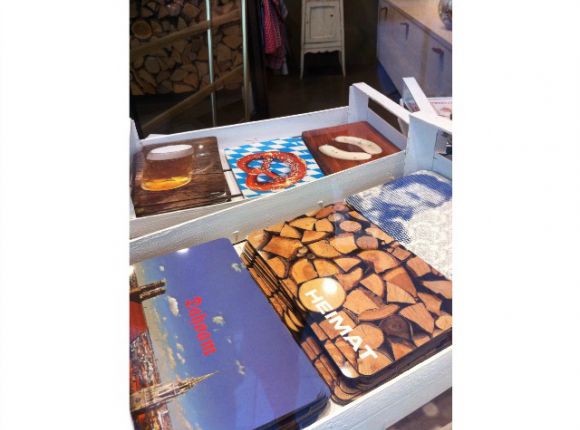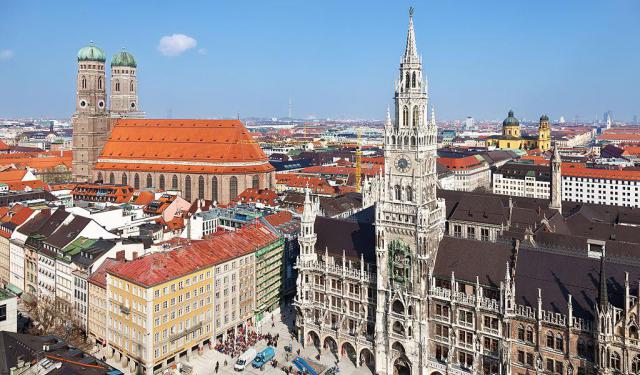1. Heilemann Chocolates

Developed in the deep south of Bavaria in 1955 by Karl Heilemann, Heilemann Chocolates have always carried a strong reputation for being exceptionally high in quality and presentation. Available in the Heilemann lineup are a whole slew of fine chocolate bars in many different flavors: white chocolate with a hint of vanilla; milk chocolate; dark chocolate infused with orange; dark chocolate with spicy ginger; and smooth melting fine milk chocolate with whole caramelized hazelnuts, just to name a few. As well as chocolate bars, Heilemann produces rich pralines and carefully, hand-crafted hollow figures as well. According to the Heilemann website, each piece is “crafted with a lot of love and artisanal skill” using recipes that have been handed from one generation to the next. There are no preservatives in any of their products, and the essential ingredients of fresh cream and butter come from Allgäu, which is also located in Bavaria. A typical bar of chocolate should cost no more than 5 Euros.
Where to find it:
Ludwig Beck: Marienplatz 11, 80331 München
Opening hours: Monday - Saturday: 10 am - 8 pm
Offline reading and travel directions:
With GPSmyCity App you can read this article offline on your mobile device, use the embedded offline city map and GPS navigation, as well as create a self-guided walk to visit the venues featured in the article.
2. Dallmayr Coffee

A tradition that has existed in Munich for over three centuries, Dallmayr Coffee is made from a very high quality blend of coffee beans. Therefore, the beverage is a staple to many Munich residents and German citizens the country over. The Dallmayr legacy began as a small family-owned grocery store and is now an international name, with the main store in downtown Munich receiving about 2.5 million visitors annually. The store is most famous for its “Prodomo” coffee blend, which is so delicious due mainly to the fine raw beans that make it up. Coming mostly out of Ethiopia, Dallmayr’s “coffee specialists” visit the regions of Sidamo and Harrar to hand pick the selection. And if that is not fine enough for you, the precise, pre-roasting refinement process serves to remove any possible irritants or bitter components from the blend. In the Dallmayr shop in downtown Munich, the unground coffee beans are stored behind the counter in hand-painted porcelain vases from Nymphenburg and are measured out using the historic beam-balances that were designed specifically for Dallmayr. A bag of coffee here will cost around 5 Euros.
Where to find it:
Munich Dallmayr Coffee: Dienerstraße 14, 80331 München
Opening hours: 9:30 am - 7 pm
Buy It on Amazon:
Offline reading and travel directions:
With GPSmyCity App you can read this article offline on your mobile device, use the embedded offline city map and GPS navigation, as well as create a self-guided walk to visit the venues featured in the article.
3. Traditional “Tracht” Clothing and Accessories

Tracht is the general name for all of the traditional clothing pieces and accessories associated with German speaking counties, although now-a-days, it typically refers mainly to the traditional clothing worn in Austria and Bavaria. The Tracht style employs the use of loden (a traditional form of felt) and linen fabrics, and often incorporates detailed stitching or embroidery into the piece. During the three weeks of Oktoberfest in the fall, Tracht is worn all over the city by both locals and foreigners alike, but for the rest of the year, it is generally worn only by Bavarians or when going to a beer festival, beer garden, or local pub.
The outfit worn by men is called a “Lederhosen,” which directly translates into leather pants, and women wear a dress and apron set called a “Dirndl.” These, as well as Tracht-style bags, hats, necklaces and other accessories, can be purchased at Almenrausch year round. However, in the weeks leading up to and during Oktoberfest, you can find Tracht and Tracht accessories almost everywhere in the city, including large department stores in Marienplatz square in downtown Munich. The prices can vary greatly depending on where and what you purchase. A full dirndl or lederhosen outfit can be up to 150 or 200 Euros, but a bag or a hat would be less, at about 30 to 50 Euros. Other smaller accessories can be purchased for less than 30 Euros.
Where to find it:
Almenrausch: Tal 1, 80331 München
Opening hours: Monday - Friday: 10 am - 7 pm;
Saturday: 10 am - 8 pm
Buy It on Amazon:
Offline reading and travel directions:
With GPSmyCity App you can read this article offline on your mobile device, use the embedded offline city map and GPS navigation, as well as create a self-guided walk to visit the venues featured in the article.
4. Fine Scarves from Ludwig Beck

Spread over 7 trendy, innovatively designed floors, Ludwig Beck is unlike any other department store existing today. With cool, quirky gifts and high-end paper and cards located next to young fashion, traditional tracht outfits and accessories, and high-couture dresses, it’s no wonder that tourists from around the world and locals from just down the street flock into the shop each season to see what new pieces are available. On the first floor, no matter what time of year it is, shoppers will find a large variety of colorful fine silk scarves, available at many different prices, from 20 to 80 Euros. No matter whom you are shopping for or what your budget is, there will definitely be a scarf here that will interest you. And not only will you be shopping at one of the nicest stores in Munich, but you also will be walking into a bit of history too. While the store in Marienplatz has been the home of Ludwig Beck since 1954, the Munich-based store itself has been around since its humble beginnings as a small family-owned shop back in 1861.
Where to find it:
Ludwig Beck: Marienplatz 11, 80331 München
Opening hours: Monday - Saturday: 10 am - 8 pm
5. “Brotzeit” Marzipan Arrangement

“Brotzeit” literally translates into bread time, but when used in Germany (and Bavaria especially) this term is referring to a small meal that is usually made up of “down to earth” Bavarian specialties: weisswursts and other sausages; cheeses and cured meats; radishes and beets; dense, thick, dark bread; and several rich, creamy spreads. All of this is typically served on a thin slab of wood and eaten in “cozy” places, like a local pub or beer garden.
While you may not be able to bring home an actual Brotzeit meal to your friends or coworkers, you can certainly bring them the essence of the idea. Available at many of the tea shops along the Residenz Strasse, across from the Bavarian State Opera House in downtown Munich, you can find small Brotzeit meals crafted out of rich marzipan, considered a delicacy and favorite to Germans, on a circular wooden stump. Easy to pack in your luggage, this marzipan treat will bring home the essence of Bavarian Brotzeit for around 15 Euros.
Where to find it:
Residenz Strasse: 13-26, 80333 München
6. Lebkuchenherzen

Directly translated into English as “gingerbread hearts,” unlike gingerbread cookies or cakes, Lebkuchenherzen are not really meant to be eaten. Decorated with hard, crunchy sugar frosting, the Lebkuchenherzen are baked with a hole in the top, wrapped in plastic, and hung from a colorful ribbon. Used as decorative ornaments around the house, Lebkuchenherzen can be found at public festivals and seasonal fairs in Munich, including Oktoberfest and both the spring and winter Tollwood festivals. They can also often be found year-round at the Viktualienmarkt downtown. Prices vary by size, with the smaller hearts costing around 4 Euros and the larger ones up to 15 or 20 Euros apiece.
Normal lebkuchen that people eat, as opposed to lebkuchenherzen made for decoration, are very popular in Germany as well, especially during Christmas time. Also known as Pfefferkuchen, Gewürzkuchen or Honigkuchen, German gingerbread is typically circular cookies available for purchase from the Galerie Kaufhof in downtown Munich in packages of 5 or 6. Some are coated in chocolate, others in almonds and powdered sugar, or just plain.
Where to find it:
Galerie Kaufhof: Kaufingerstrasse 1-5, 80331 München
Opening hours: Monday - Saturday: 10 am - 8 pm
7. Beer Stein from the Hofbräuhaus

Dating all the way back to 1589, the famous Hofbräuhaus in Munich was founded by the Duke of Bavaria, Wilhelm V. Originally, the Hofbräuhaus building was not open to the public, but in 1828 — luckily for both tourists and locals — the building opened its doors to the masses. Today, it is a warm place, thick with traditional atmosphere and friendly vibes, where you can come to eat typical Bavarian food, listen to the Oompah band play loudly on stage, and gulp down the rich Hofbräuhaus beer in large, one-liter steins, which the Germans call a Mass.
In 1516, the “Bavarian Beer Purity Law” was passed, which states that only natural ingredients can be used to brew the beers. To this day, the beers of Munich, Hofbräuhaus beer included, are held to that high, delicious standard of beer manufacturing. Available in the gift shop of the Hofbräuhaus am Platzl in downtown Munich, you can bring home one of the large, traditional glass Hofbräuhaus beer steins. Just don’t tell any Germans that you will probably be filling it with something other than the pure, golden Hofbräuhaus beer. Cost: around 10 to 15 Euros.
Where to find it:
Hofbräuhaus am Platzl: Platzl 9, 80331 München
Opening hours: Daily: 11 am - 12 am
8. Eilles Tea
In 1873, Joseph Eilles opened Eilles Tea across from the Bavarian State Opera House on Residenz Strasse. His shop was the first specialty tea and coffee shop in Munich, and from the very beginning, Joseph was known for his high-quality product; in fact, he was so good that he quickly became the supplier for the Royal Bavarian Court. Without him, it is said, that the tea culture in Munich would not have been what it is today. Still located across from the Bavarian State Opera House, Eilles Tea is a cozy store that offers a huge variety of high-quality teas and coffees. And of course, they would not forget to offer many types of chocolates, marzipan sweets and cookies to pair with the warm drinks. It is quite possible that the large selection will overwhelm you; don’t hesitate to ask the friendly staff behind the dark wood front counter for help. Tea here is quite reasonably priced, and depending on how much you buy, it will cost somewhere between 3 and 10 Euros.
9. FC Bayern München Jersey

Represented by the red and white colors, with a little bit of the typical Bavarian blue and white diamond pattern thrown into the logo for effect, FC Bayern München is a very beloved German sports club that is based in Munich. And while the Bayern München club does host other sports besides soccer (like basketball, handball, chess, gymnastics, bowling, and table tennis), they are most known for their “Fussball” as the Germans call it.
Pride for FC Bayern München runs thick in Bavaria, and for a good reason - they have won 22 national titles and 15 cups. Three of the European Cups that the team won occurred consecutively in the 1970s, when the club was being run by Franz Beckenbauer. Because of this, some people believe that that was the club’s heyday, but in fact, they are still going pretty strong now. On game days, especially when playing at home (which now takes place in the Allianz Arena, rather than the Olympic Stadium, as it did for 33 years), fans come out in groves, decked out in red and white from top to bottom to support the team. Singing all over the streets, underground trains, trams, and buses, the fans certainly make themselves seen and heard. Cost for a BM jersey of your own is around 50 to 70 Euros.
Where to find it:
FC Bayern München Gear Shops: Orlandostrasse, 80331 München
Opening hours: Monday - Saturday: 10 am - 8 pm
Buy It on Amazon:
10. Gummy Bears

The Spiegel is a German magazine, and they have an international section online in English. In this section there is a sub-section called, “Germany Survival Bible,” and on March 24, 2006 they published an article titled, “The Gummy Bear Obsession.” The byline says it all: “Want to make a German happy? Flowers and wine might be a good start. But to really win one over, consider a gift of sickly-sweet globs of sugary gelatin.” Bottom line - the Germans love their Gummy Bears. Invented by Hans Riegel in 1922, the Haribo “dancing bear” was what first won the affection of millions of Germans. Even Albert Einstein loved them, and today they are given out for free in the cafeteria of the German parliament. The Association of the German Confectionery Industry reports that a German, on average, consumes 3.49 kilograms of gummy candies per year!
In Munich there are several gummy bear stores for you to choose from, including one in the Pasing Arcaden, which offers you bags of gummy bears for about 4 Euros. But in the Stachus Passage, in the underground-station area of Karlsplatz (Stachus), there is a gummy bear store that sells German beer and cocktail glasses filled with gummy bears to make it look like they are filled with either golden beer or colorful beach drinks; these range in price from 7 to 20 Euros, depending on size.
Where to find it:
Bears&Friends: Pasing Arcaden, Pasinger Bahnhofspl. 5, 81241 München
Opening hours: Monday - Saturday: 9:30 am - 8 pm
Buy It on Amazon:
11. Weisswursts in a Jar to Take Home

Literally translated as “white sausage,” weisswursts were, as the story has it, born in downtown Munich in 1857 when an innkeeper ran out of sheep’s skin for making roasted sausages. Guests were waiting for their food, so without any chance to plan a new meal, the innkeeper had to think quickly. In place of the sheep’s skin, he used pig’s skins, which were quite a bit larger. He filled them in, but then, instead of roasting them, he heated them in hot water out of fear that the skins would burst under the heat of the fryer. And that is how Munich ended up with its typical 6-7 inch, 2.5 ounce white sausage. Generally devoured around 10 or 11 in the morning as a brunch (although many Bavarians will eat them for breakfast too), Weisswursts are usually eaten with a sweet Bavarian mustard, a large soft pretzel, and a weissbier to wash it all down. Available at many supermarkets, this will only set you back a couple of Euros. Just remember: don’t eat the skin!
Where to find it:
Galerie Kaufhof: Kaufingerstrasse 1-5, 80331 München
Opening hours: Monday - Saturday: 10 am - 7 pm
Buy It on Amazon:
12. German Cutting Boards and Kitchen Utilities

The people of Bavaria enjoy their own kind of style, which is presented in certain colors (blue and white, for example), patterns (rows of alternating colors of diamonds) and designs. They are proud of their long traditional heritage and Bavarian language (which is actually quite different from the more general German language), and therefore, they often decorate their homes with items that show off their tradition and culture.
At Obacht’, a small store in downtown Munich, many of these cozy household items stemming from Bavarian traditions are available. This is just one place where you can find a staple of German kitchens: the German cutting board. Smaller and narrower than most American cutting boards, these decorated plastic boards are designed to showcase Bavaria. With bright background colors, some feature pictures of the traditional German “weisswurst sausage and spicy mustard” breakfasts, while others proudly present the famous Bavarian soft pretzel, a cool beer, a scene from Oktoberfest, or even the skyline of Munich. The cutting boards, as well as other items in the store, such as specific aprons and specially decorated coffee cups, are all staples in warm German homes, and will cost you about 5 Euros for the mugs, 10 Euros for the cutting boards and 20 to 30 Euros for the aprons.
Where to find it:
Obacht’: Ledererstraße 17, 80331 München
Opening hours: Monday - Saturday: 11 am - 6 pm
Buy It on Amazon:
Other Interesting Souvenirs from German
If traveling to Germany is not on your immediate agenda, or you simply can't afford an extra space in your luggage, fortunately, these days, you can find a wide selection of authentic and truly interesting German souvenirs online. Presented here are some of the German products sought by foreign visitors, now available online for your convenience.
1. A Piece of Berlin Wall - Original fragment of the Berlin Wall at Checkpoint Charlie, a genuine piece of the Cold War and that of the German and American history combined! A live manifestation of the 'Iron Curtain' that once fell across Europe, this unique souvenir is a perfect fit, as a decorative accessory, for a home or office interior, and is a definite must-have collector's item.



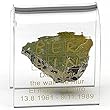
2. Cuckoo Clock - Made in Germany, in a traditional style, with love, care and German precision, this original German cuckoo clock features a mechanical or quartz clockwork placed inside a case hand-carved out of a solid piece of wood with traditional walnut finish. When the clock strikes the hour or half-hour, the door opens and a cuckoo pops out, calling along with the clock's gong. The old-world charm at its best. Ideal for bedrooms.





3. Hummel figurines - Hummel porcelain figurines (or simply Hummels) are based on the drawings of Sister Maria Innocentia Hummel. They became much popular after the World War II, thanks to the American soldiers stationed in West Germany who favored them a lot as souvenirs to send back home. Goose Girl, Apple Tree Girl, and many other fine earthenware figurines of girls and boys, created by German sculptor Arthur Moeller in the 1930s-40s, are still much popular these days with collectors and non-collectors alike.


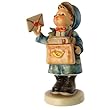

4. Steiff Bear - Entirely handmade by Steiff, the world's oldest manufacturer of soft toys and the inventor of the famous Teddy bear, this cuddly soft plush toy is an ideal christening or birth gift that may be passed down to future generations as a treasured heirloom. Sewn from the finest plush materials available, it is absolutely perfect for a baby's delicate skin.




